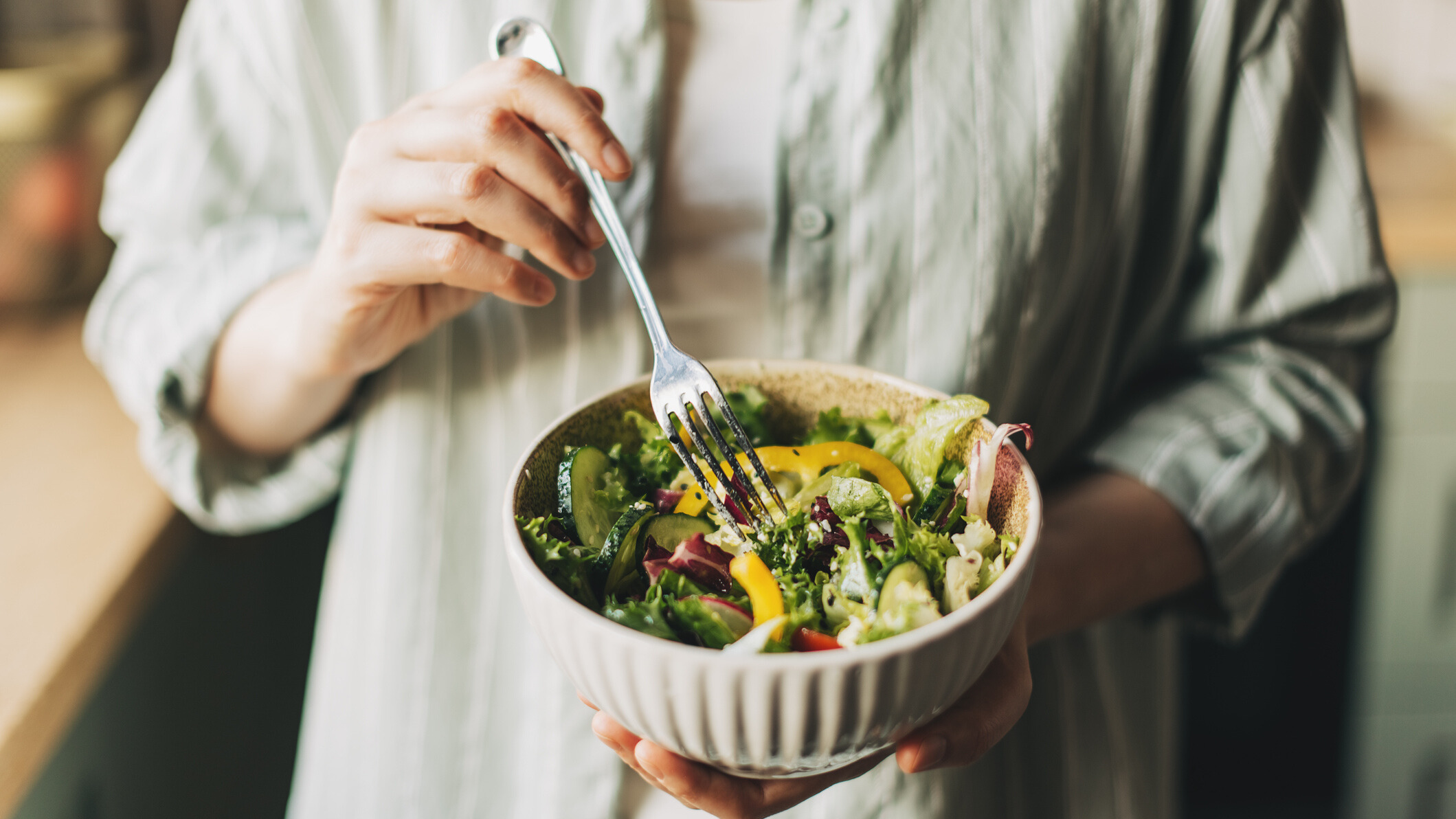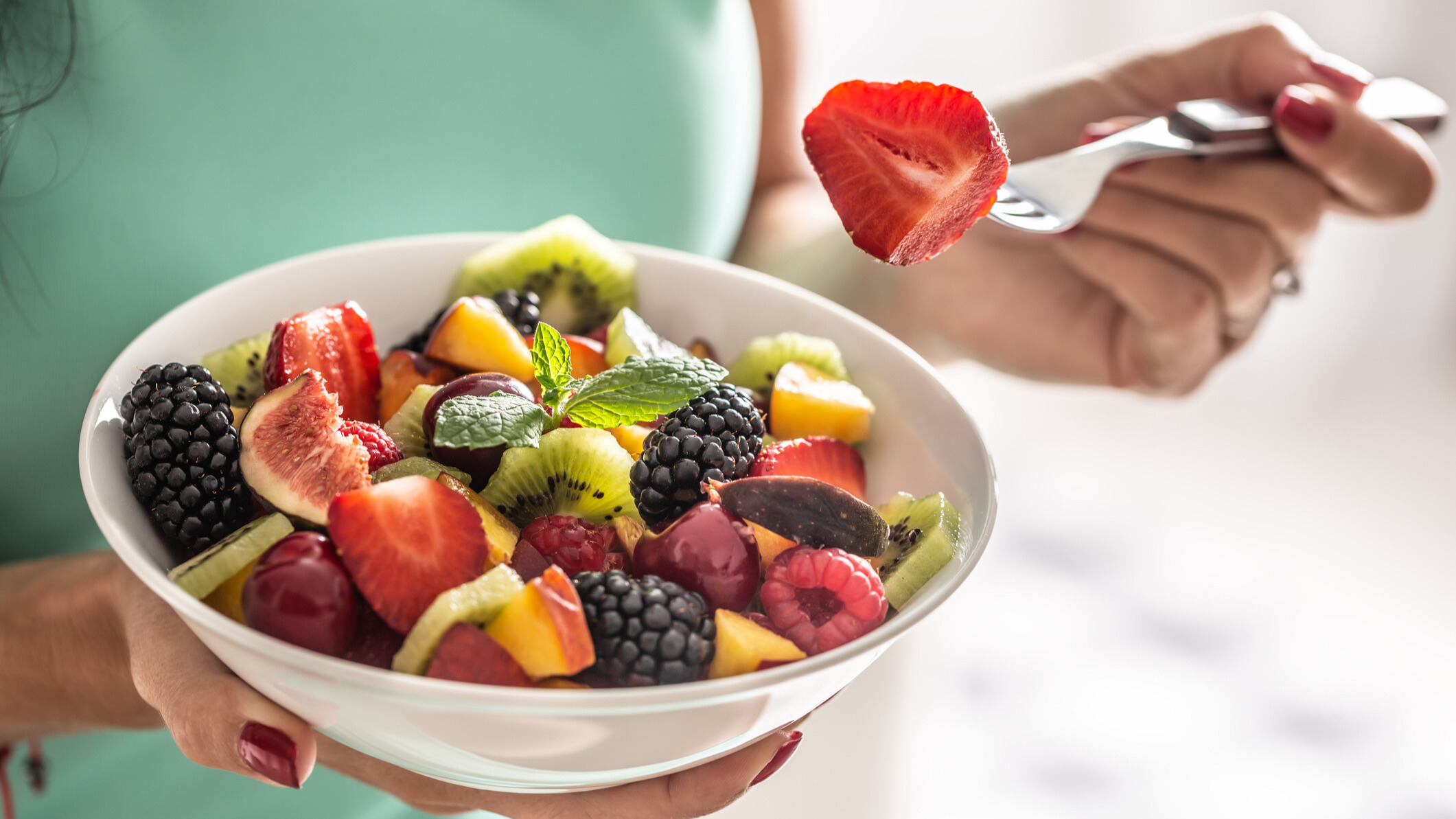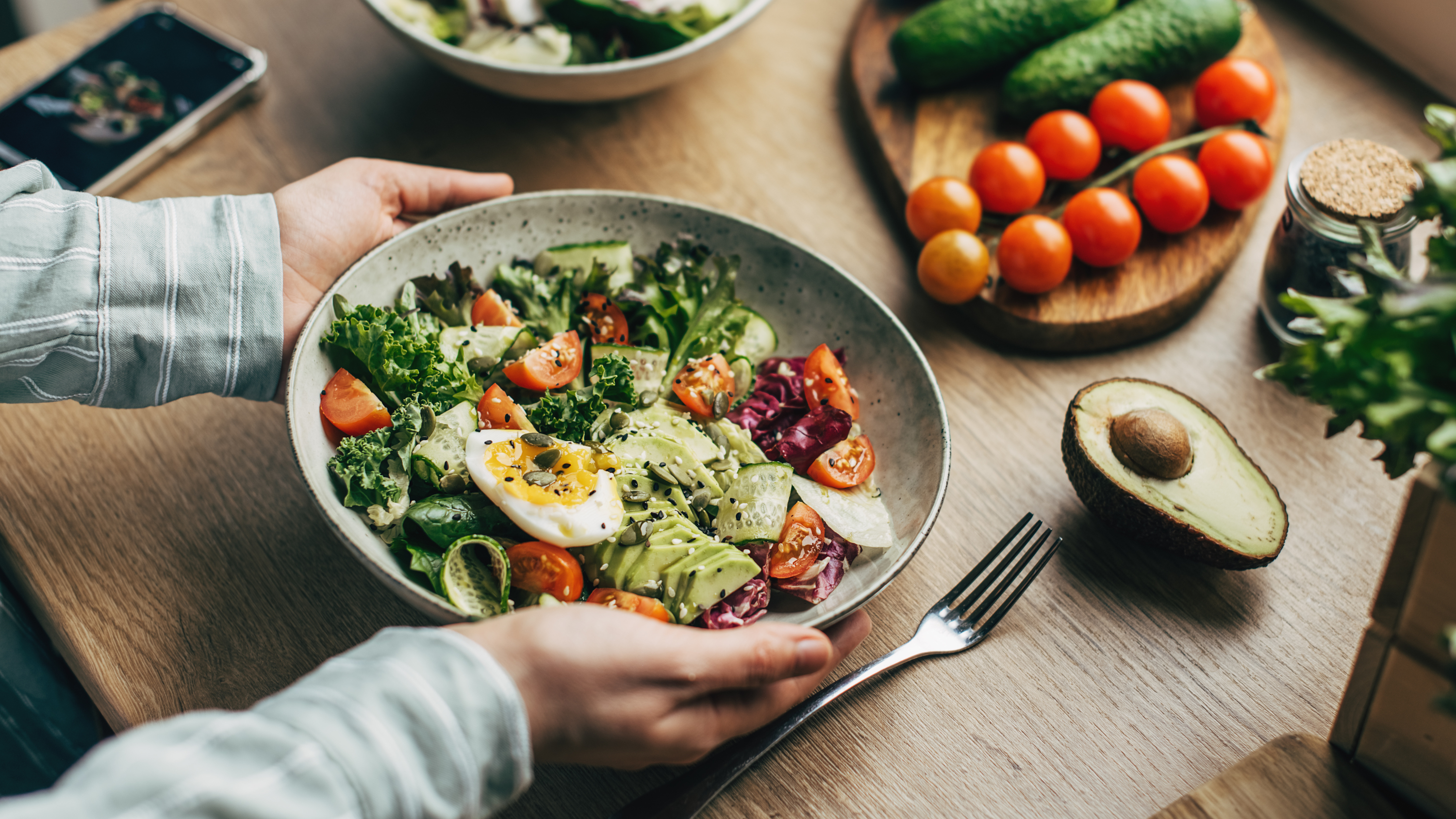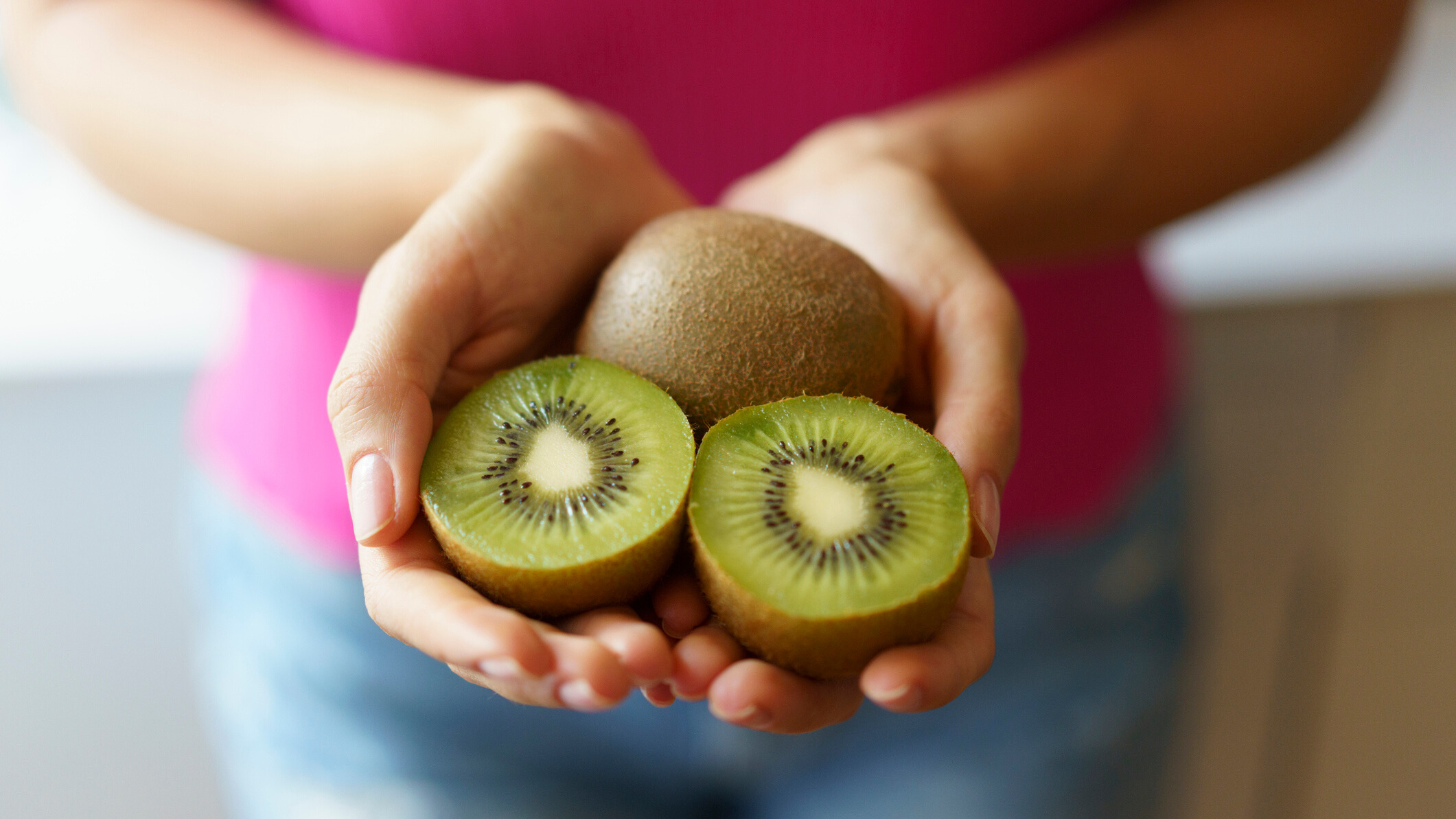Want to sleep better tonight? Eat more of this food type today, says new study
A new study suggests that eating the CDC recommended of fruit and vegetables may improve your sleep quality by 16%

Here at Tom’s Guide our expert editors are committed to bringing you the best news, reviews and guides to help you stay informed and ahead of the curve!
You are now subscribed
Your newsletter sign-up was successful
Want to add more newsletters?

Daily (Mon-Sun)
Tom's Guide Daily
Sign up to get the latest updates on all of your favorite content! From cutting-edge tech news and the hottest streaming buzz to unbeatable deals on the best products and in-depth reviews, we’ve got you covered.

Weekly on Thursday
Tom's AI Guide
Be AI savvy with your weekly newsletter summing up all the biggest AI news you need to know. Plus, analysis from our AI editor and tips on how to use the latest AI tools!

Weekly on Friday
Tom's iGuide
Unlock the vast world of Apple news straight to your inbox. With coverage on everything from exciting product launches to essential software updates, this is your go-to source for the latest updates on all the best Apple content.

Weekly on Monday
Tom's Streaming Guide
Our weekly newsletter is expertly crafted to immerse you in the world of streaming. Stay updated on the latest releases and our top recommendations across your favorite streaming platforms.
Join the club
Get full access to premium articles, exclusive features and a growing list of member rewards.
While we come across many effective sleep trends here at Tom's Guide, most of these need to be followed consistently over time to see any kind of impact. However, the latest research suggests there is one way to see results overnight.
According to a new study led by researchers at University of Chicago Medicine and Columbia University, eating more fruits and vegetables during the day can lead to more sound sleep the same night.
Here, we’re looking into the study findings in detail to understand how your diet is linked to sleep and the quantity of fruits and veggies you should aim to consume in a day.
As a bonus, we’ve also listed three of the top fruits and veggies, backed by science, that can maximise your efforts to eat for a better sleep. Scroll down to find out more…
Key takeaways from the study
- Researchers tracked diet and sleep of 34 young adults
- They discovered that eating more fruit and vegetables led to less disrupted sleep
- Using their results and prediction models, they suggest that eating the CDC recommended quantity of fruits and veggies can improve sleep quality by 16%
The study, recently published in the Journal of the National Sleep Foundation, included 34 healthy young adults (28 men and six women) who met the criteria of being aged 20 and 49, and generally sleeping between 7 to 9 hours on an average.
During the study, participants recorded their consumption of food and drinks over multiple 24-hour periods using the Automated Self-Administered 24-Hour Dietary Assessment Tool, an app, while their sleep pattern data was collected via a wrist monitor they wore throughout the duration of the study.

Researchers used the sleep fragmentation index (SFI) to measure sleep quality during the study, which indicates the number of times someone wakes up and shifts in sleep stages from deep to light sleep during the night. Lower SFI means less disrupted sleep, while higher SFI indicates a night with more sleep disruption.
The results showed that, "greater fruit and vegetable intakes during the day were associated with lower SFI during the subsequent night," while greater carbohydrate intake was also associated with lower SFI.
Interestingly, red meat and processed meat led to "a trend toward more fragmented sleep," according to the researchers.
Using their results and prediction models, the researchers suggest that eating the CDC-recommended intake of fruit and vegetables could see a lower SFI, and therefore an improvement in sleep quality, compared to someone who ate none.
"A 5-cup increase (from no intake) in fruits and vegetables, meeting dietary recommendations, would be associated with 16% better sleep quality," they said in the study.
“16 percent is a highly significant difference,” co-author of the study Esra Tasali MD, director of UChicago Sleep Center, said.
“It’s remarkable that such a meaningful change could be observed within less than 24 hours," she added.
How does your diet impact your sleep?
Our sleep cycle is influenced by melatonin (the sleepy hormone) which our body naturally produces. We already know that what we consume can impact sleep, for example, research has previously shown that magnesium and tryptophan can help boost the production of melatonin, which translates to better sleep overall.
Tweaking our diet is one way in which we can include sleep-friendly nutrients, which can lead to a more restorative sleep. And this new research has shown that it may be as simple, and affordable, as adding more of your favorite fruits and veggies.
"Dietary modifications could be a new, natural and cost-effective approach to achieve better sleep," says Dr Tasali, who added that the study results are an important step in the right direction.
“The temporal associations and objectively-measured outcomes in this study represent crucial steps toward filling a gap in important public health knowledge," she explains.

What is the CDC recommended quota of fruits and veggies?
The researchers in the study suggest that eating five cups of fruits and veggies in a day, as recommended by the Center for Disease Control and Prevention, could improve sleep quality. So what does that look like?
The American Heart Association suggests consuming 2 cups of fruits and 2 1/2 cups of vegetables per day. Each of the below fruit and veggie portions, they say, is the equivalent of one cup:
Fruits: 8 large strawberries, 22 grapes or 1 medium apple, pear, orange, peach, grapefruit or nectarine or 2 to 3 kiwis.
Vegetables: 1 large bell pepper, 1 medium potato, 2 medium carrots or 12 baby ones, 2 cups raw or 1 cup cooked leafy veggies (lettuce, kale, spinach, greens), 1 large ear corn or a large sweet potato.

According to the researchers, the bottom line is that a diet rich in complex carbohydrates, fruits and vegetables can be beneficial for sleep in the long run.
“Small changes can impact sleep. That is empowering — better rest is within your control," says co-senior author Marie-Pierre St-Onge, PhD, director of the Center of Excellence for Sleep & Circadian Research at Columbia.
3 fruits and veggies that can help you sleep better
1. Avocado
Perhaps the one fruit that should be in your radar for better sleep now is avocado. A recent study supported by the Avocado Nutrition Center, saw that daily consumption of an avocado improved sleep health, diet and blood lipids (including lower cholesterol).
The study aimed to look at the effect of consuming one avocado a day on the American Heart Association's cardiovascular health score, Life's Essential 8 (LE8), the eight components of cardiovascular health.
Researchers recruited 969 American adults for the study, all of whom had an elevated waist circumference (a cardiovascular risk factor for US adults) and asked them to add one large Hass avocado to their regular diets for 26 weeks. They also had a control group for the study period, who did not consume the additional avocado.
The study calculated one of the LE8 sleep health "based on self‐reported average hours of sleep per night and scored according to 4 levels," and the participants saw an improvement of an average 3.20 points in their sleep health compared to the control group after the 26 weeks.
Avocados have approximately 13 mg tryptophan, 45 mcg folate (also promotes melatonin production) and 15 mg magnesium per serving (1/3 medium avocado) — which may be why they are involved in better sleep health and sleep quality.

2. Kiwis
Looking for a quick healthy nighttime snack before bed? The kiwi fruit could be a great option. Research has shown they can improve sleep in a variety of ways in adults.
Eating two medium-sized kiwis, one hour before bedtime led to a significant improvement in sleep efficiency and sleep time, as well as decreased "waking time after sleep onset, and sleep onset latency" in a study conducted at Taipei Medical University.
According to the researchers, kiwi fruit "is rich in antioxidants, vitamins C and E, flavonoids, anthocyanins, and carotenoids, and it contains approximately twice the concentration of serotonin as tomatoes," who note that serotonin plays a role in REM sleep.
As well as being full of vitamins, potassium and antioxidants, Kiwis can also, per the Cleveland Clinic, help maintain good gut health, which is yet another reason to add them to your diet.
3. Dark leafy greens
"Eat your greens" is a phrase you've probably heard since childhood, and the good news is, whoever said it to you was looking out for your wellbeing, because dark, leafy greens can also improve your sleep.
Dark leafy vegetables like spinach, swiss chard and kale are, say the Cleveland Clinicnatural sources of magnesium.
Among other benefits, they are also known to be rich in calcium, which has been shown to aid in production of melatonin.

Becky is a Sleep Staff Writer at Tom’s Guide covering all things sleep-related including product reviews, research studies, news and explainers. She works on specialist bedding content and is responsible for buyer’s guides like the best pillows for all sleepers and best mattress protectors focusing on popular brands such as Tempur-Pedic, Avocado, Coop Home Goods and more. Becky is a PPA accredited journalist who is keen to explore the intricacies of sleep, its effects on skincare, mental wellbeing and work performance. While not thinking of sleep, she can be seen reading in cosy bookshops or learning about global food culture.
You must confirm your public display name before commenting
Please logout and then login again, you will then be prompted to enter your display name.
 Club Benefits
Club Benefits










